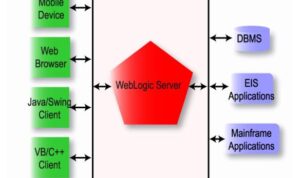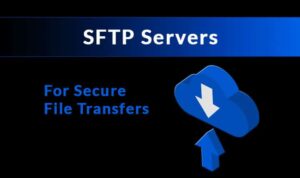Managed server hosting opens the door to a world of possibilities, offering a secure and efficient solution for your hosting needs. In this detailed exploration, we will delve into the key features, setup process, management tasks, cost considerations, and more surrounding managed server hosting.
Let's embark on this enlightening journey together.
Introduction to Managed Server Hosting
Managed server hosting refers to a type of hosting service where the service provider takes care of all the technical aspects of managing a server for the client. This includes tasks such as server setup, maintenance, security, updates, and monitoring.
There are several benefits to using managed server hosting. Firstly, it allows businesses to focus on their core activities without having to worry about server management. This can save time, resources, and money. Additionally, managed server hosting often includes 24/7 technical support, ensuring that any issues are promptly addressed by experts.
The Difference Between Managed Server Hosting and Other Hosting Options
- Managed vs. Shared Hosting: In shared hosting, multiple websites share the resources of a single server, leading to potential performance issues. Managed hosting, on the other hand, provides dedicated resources for a single client, offering better performance and security.
- Managed vs. Unmanaged Hosting: Unmanaged hosting requires clients to handle all server management tasks themselves, while managed hosting offloads these responsibilities to the service provider. This can be beneficial for clients who lack technical expertise or prefer to focus on other aspects of their business.
Features of Managed Server Hosting
Managed server hosting comes with a variety of features that cater to the needs of businesses looking for reliable and secure hosting solutions. Below are some key features of managed server hosting:
24/7 Monitoring and Support
Managed server hosting providers offer continuous monitoring of server performance and round-the-clock technical support to address any issues promptly.
Regular Backups and Updates
Managed server hosting includes automatic backups of data to prevent loss in case of unexpected events, along with regular software updates to ensure the server is secure and up-to-date.
Enhanced Security Measures
Managed server hosting providers implement robust security measures such as firewalls, intrusion detection systems, and malware protection to safeguard data and prevent unauthorized access.
Scalability Options
Managed server hosting allows businesses to easily scale their resources up or down based on their requirements, ensuring flexibility and cost-effectiveness in managing server resources.
Performance Optimization
Managed server hosting services often include performance optimization features such as load balancing, caching, and content delivery networks to enhance website speed and overall user experience.
Expert Technical Assistance
With managed server hosting, businesses have access to a team of experienced professionals who can provide technical assistance, troubleshoot issues, and offer guidance on optimizing server performance.
Compliance and Regulatory Support
Managed server hosting providers ensure that servers are compliant with industry regulations and standards, offering support to help businesses meet legal requirements and maintain data integrity.
Customization and Configuration
Managed server hosting allows businesses to customize server configurations to meet their specific needs, ensuring optimal performance and compatibility with their applications and software.
Setting Up Managed Server Hosting
When setting up a managed server hosting environment, there are several crucial steps to consider. From hardware and software requirements to selecting the right provider, each decision plays a vital role in the success of your hosting solution.
Hardware and Software Requirements
Before diving into the setup process, it's essential to ensure that you have the necessary hardware and software in place to support your managed server hosting.
- Hardware: A reliable server with sufficient processing power, memory, and storage capacity is a must for a managed hosting environment. Make sure your hardware can handle the demands of your website or application.
- Software: Choose an operating system and software stack that aligns with your needs. Whether you prefer Linux or Windows, and whether you require specific applications or databases, ensure that your software setup is compatible with your managed server hosting plan.
Choosing the Right Managed Server Hosting Provider
One of the most critical decisions in setting up managed server hosting is selecting the right provider. Your hosting provider will not only manage the server infrastructure but also provide support and ensure optimal performance.
- Reputation: Look for a provider with a solid reputation for reliability, security, and customer support. Check reviews and testimonials from other clients to gauge the provider's performance.
- Services Offered: Consider the range of services offered by the provider, such as server monitoring, backups, security measures, and technical support. Choose a provider that offers the services you need to maintain your server effectively.
- Scalability: Ensure that the provider can accommodate your growth and scale your server resources as needed. A flexible hosting solution that can adapt to changing demands is crucial for long-term success.
Managing and Monitoring Managed Server Hosting
When it comes to managing a managed server hosting environment, there are several key tasks that need to be performed to ensure optimal performance and security.
Tasks Involved in Managing a Managed Server Hosting Environment
- Regular software updates: Ensuring that all software, including the operating system and applications, are up to date with the latest patches and security fixes.
- Monitoring resource usage: Keeping an eye on CPU, memory, and disk usage to prevent any bottlenecks that could affect performance.
- Backup and disaster recovery: Implementing regular backups and having a plan in place in case of data loss or system failure.
- Security measures: Setting up firewalls, intrusion detection systems, and other security measures to protect the server from threats.
Tools and Software for Monitoring Performance in Managed Server Hosting
- Monitoring software: Tools like Nagios, Zabbix, or Prometheus can be used to track performance metrics and alert administrators to any issues.
- Logging and analytics: Utilizing tools like ELK stack (Elasticsearch, Logstash, Kibana) to analyze logs and gain insights into server performance.
- Server health checks: Conducting regular health checks to ensure that all components of the server are functioning properly.
Importance of Regular Maintenance and Updates in Managed Server Hosting
Regular maintenance and updates are crucial in managed server hosting to ensure the stability, security, and efficiency of the server environment. By keeping software up to date, monitoring performance metrics, and implementing security measures, you can minimize downtime and prevent potential issues before they arise.
Cost Considerations of Managed Server Hosting
When it comes to choosing a hosting solution for your website or application, cost is a crucial factor to consider. Managed server hosting is known for its convenience and reliability, but it also comes at a price. Let's delve into the cost considerations of managed server hosting and explore ways to optimize expenses.
Comparing Costs
- Managed server hosting typically costs more than shared hosting but less than dedicated hosting.
- While shared hosting is the most budget-friendly option, it lacks the performance and security features of managed hosting.
- Dedicated hosting offers the highest level of control and resources but comes with a higher price tag.
Factors Influencing Pricing
- The level of management and support provided by the hosting provider can significantly impact the cost.
- Additional services such as backup, security, and monitoring can increase the price of managed server hosting.
- The hardware specifications and resources allocated to your server also play a role in determining the pricing.
Optimizing Costs
- Choose a hosting plan that aligns with your actual requirements to avoid paying for unnecessary features.
- Regularly review your resource usage and consider scaling your server resources based on actual needs to prevent overpaying.
- Look for hosting providers that offer discounts for long-term commitments or bundle services to save on costs.
End of Discussion
In conclusion, managed server hosting emerges as a robust and reliable option for individuals and businesses seeking top-tier performance and security in their hosting environment. With its scalable options, comprehensive management tools, and cost-effective strategies, managed server hosting stands out as a premier choice for those looking to elevate their online presence.
Expert Answers
What is managed server hosting?
Managed server hosting involves leasing a server that is actively maintained and managed by a hosting provider, offering enhanced security and performance.
How does managed server hosting ensure security?
Managed server hosting ensures security through regular updates, monitoring for potential threats, and implementing advanced security measures.
What are the key features of managed server hosting?
Key features include dedicated resources, 24/7 support, automatic backups, and advanced security protocols.
How does pricing for managed server hosting compare to other options?
Managed server hosting typically comes at a higher cost than shared hosting but offers greater control, security, and performance benefits.
Why is choosing the right managed server hosting provider important?
The right provider ensures optimal performance, security, and support for your managed server hosting environment, impacting the success of your online presence.








